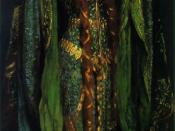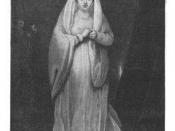Shakespeare speech
False appearance and apparition recurs regularly throughout Shakespeare's Macbeth. The audience and even the characters themselves are often unsure of the distinction between what appears to be real and what actually is. Shakespeare makes a great statement through the play of how easily one can deceive and be deceived. It is full of rumours and fears, vague knowledge, uncertainties, riddles and half-truths. In today's rat race deception can be seen everywhere, used as weapon for people to get to places of power and for others used for a shortcut to wealth. The bigger they are, the harder they fall, and External pressures are common characteristics of Shakespeare's tragedies and Macbeth is no exception. By presenting the audience with Macbeth, a man who went through so much to get excessive wealth and power, his eventual downfall fall is all the more tragic. Shakespeare's tragic heroes often fall victim to external pressures.
Fate, evil spirits and manipulative characters all play a hand in Macbeth's downfall as he misinterprets the witches, which eventually ends up resulting in death.
This theme of how deceptive appearances can be in life is fully explored in Macbeth by William Shakespeare mainly through the use of the main characters Macbeth and Lady Macbeth. Lady Macbeth is the most skilled at persuading others, especially her husband, into believe things that are not true. The quote "Your hand, your tongue: look like the innocent flower, but be the serpent under't", spoken by Lady Macbeth to her husband, shows exactly how manipulative and deceiving she can be. She is telling Macbeth to look and act pure, but to be evil inside. Macbeth, evidently led by his wife, but also by his own ambitions, is likewise guilty of deception. He deceives his best friend Banquo, King Duncan, as well...


